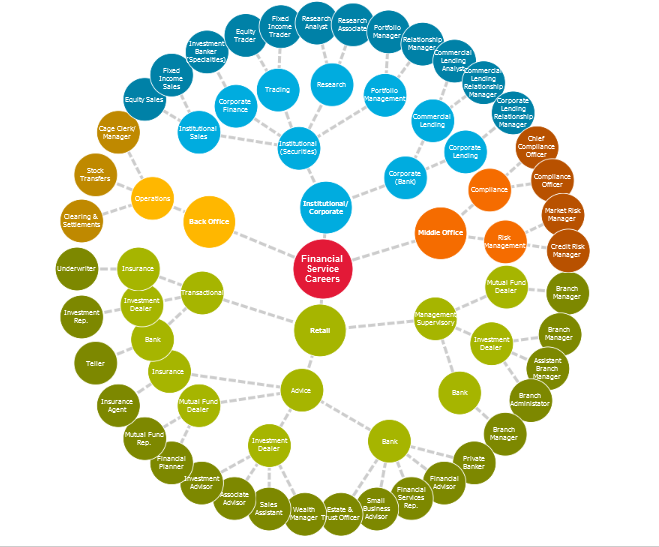
You will find many opportunities if you are interested to work in health care consultancy. You can choose between product-based consulting, which involves creating medical products, or delivery-oriented, which is focused on delivering healthcare services. One example of a product-oriented consultant project is to develop a new feature for an EMR. A delivery-oriented project may be to help a hospital group launch a new software system.
Duties
While the roles of health care consultants can vary, there is one thing they all share: they aid in the smooth running and efficiency of health care organizations. This is done by finding ways to increase revenue, reduce costs, and maintain or improve customer satisfaction. They work closely with senior executives to find the root causes and recommend optimal solutions. They are often employed by private clinics, medical institutions, or pharmaceutical companies.

Consultants help hospitals and clinics increase efficiency by helping improve their billing and insurance claim processes. A lot of these professionals are aware of the recent trend in value-based medicine, which is where providers are paid based on the patient's value.
Credentials
There are many credentials available for health care consulting. Entry-level consultants usually have at least an associate's degree from an institution that is accredited. There are also degree programs that focus on health care management, ethics, and medical terminology. Employers may also find you more appealing if you have a master's in administration or health care management. This certification shows you are knowledgeable in your field and dedicated to your profession.
Entry-level positions require a bachelor's and some work experience for health care consultants. Internships can be a great way to gain relevant work experience and help you compete for higher-paying positions. Although a master's degree in healthcare consulting is not necessary, it can help you stand out from the rest of the field for higher-level jobs.
Perspectives on the job
There is a strong demand for health care professionals due to the growing population and regulatory environment. The median salary for healthcare professionals is $97,400. Consultants play an important role in the healthcare industry by helping to improve patient care and service.

Healthcare consultants work closely together with clients to identify issues and create solutions. Clients may want to decrease the cost of medical supplies, or improve the efficiency of their medical facilities. Healthcare consultants employ problem-solving skills to find and implement solutions that improve the operations of their clients. Consultants can be assigned deadlines and work on multiple projects simultaneously.
FAQ
Why would a company hire consultants?
Consultants provide expert advice on how to improve the performance of your business. They don't sell products.
A consultant assists companies in making better decisions by offering sound analysis as well as suggestions for improvement.
Consultants often work closely alongside senior management teams to help understand what they need to succeed.
They offer coaching and leadership training to help employees achieve their highest potential.
They may be able to advise businesses on ways to cut costs, improve efficiency, and streamline processes.
What happens after the consultant has finished the job?
After the consultant completes their work, he/she will submit a final summary of the results. This report includes the deliverables and project timelines.
You will then review the report to determine if the consultant fulfilled your expectations. If it does not, you can ask for changes or terminate the contract.
Are you a qualified consultant?
Studying a subject deeply and then applying your knowledge is the best way for you to become an expert.
If you are interested in becoming a great advisor, then start learning now!
If you have a degree but no relevant experience, you may struggle to get hired. However, if you can demonstrate that you've studied the same subjects as those who got the jobs, you could still apply.
Employers will always be attracted to candidates who are able to apply their real-world skills.
Do I require legal advice?
Yes! Yes. Many consultants will create contracts for clients without seeking legal advice. However, this can lead to problems down the road. For example, what happens if the client terminates the agreement before the consultant's completion date? What happens if the consultant doesn’t meet the deadlines specified in the contract.
To avoid any potential problems, it is best to consult a lawyer.
What type of jobs can a consultant do?
A job as a consultant requires you to have an excellent understanding of business strategy and operations. It is important to understand the workings of businesses and how they fit into society.
Consultant work requires excellent communication skills and the ability to think critically.
Because they might be required to complete different tasks at different times, consultants must be flexible. They should be able change direction quickly, if required.
They must be prepared to travel extensively for the clients they represent. This type work can take them anywhere in the world.
They should also be able manage stress and pressure. Consultants may need to meet strict deadlines.
As a consultant you might work long hours. This could mean that overtime may not always be paid.
What tax do I have to pay on consulting income?
Yes. Taxes will be charged on consulting profits. The amount you earn depends on your annual income.
You can also claim expenses if you are self-employed. This includes rent, childcare, food, and transportation.
But you won't be able to deduct interest payments on loans, vehicle depreciation, or the cost of equipment.
You can only claim back 25% of your expenses if you earn less than PS10,000 a year.
However, even if your earnings exceed this threshold you may still be subject to tax depending on whether or not you are a contractor or an employee.
Pay as you Earn (PAYE) is the most common method of taxing employees. Contractors pay VAT.
Statistics
- Over 50% of consultants get their first consulting client through a referral from their network. (consultingsuccess.com)
- According to IBISWorld, revenues in the consulting industry will exceed $261 billion in 2020. (nerdwallet.com)
- So, if you help your clients increase their sales by 33%, then use a word like “revolution” instead of “increase.” (consultingsuccess.com)
- Over 62% of consultants were dissatisfied with their former jobs before starting their consulting business. (consultingsuccess.com)
- According to statistics from the ONS, the UK has around 300,000 consultants, of which around 63,000 professionals work as management consultants. (consultancy.uk)
External Links
How To
How To Find The Best Consultant?
It is important to first ask yourself what you expect from a consultant when searching for one. Before you look for someone, you need to be clear about your expectations. Before you start looking for a consultant, make a list. This could include: professional expertise and technical skills, project management capabilities, communication skills, availability, etc. After you have outlined your requirements, you might want to ask friends and colleagues for recommendations. Ask them if they had any bad experiences with consultants previously and see how their recommendations compare with yours. If you don't have any recommendations, try doing some research online. Many websites allow people to post reviews about their work experience, including Angie's List and Indeed. Consider the ratings and comments of other candidates and use these data to start your search for potential candidates. After you've compiled a list of potential candidates, it is time to reach out to them and schedule an interview. At the interview, it is important to discuss your requirements and get their feedback on how they can help. It doesn’t matter if the person was recommended to you; it matters that they understand your business goals, and can show you how they can help.